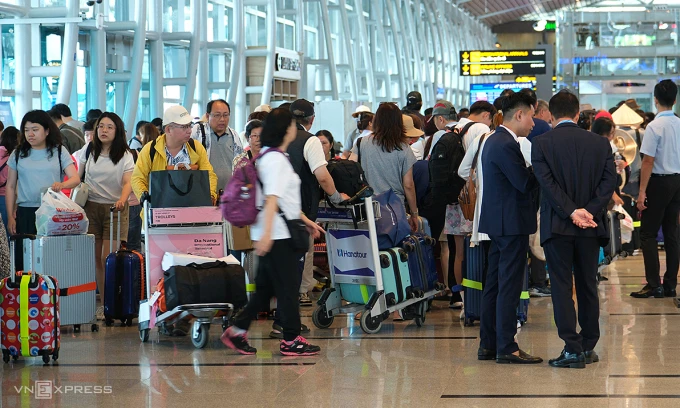 Illustrative photo (Photo: thainews.prd.go.th)
Illustrative photo (Photo: thainews.prd.go.th)
Bouncing back from pandemic-era losses, Southeast Asian airlines are signing big aircraft purchase deals to capture demand as tourists return to the region.
Indonesia's state airline Garuda has planned to lease eight aircraft this year to expand its fleet to 80 aircraft and increase the frequency of flight routes by the end of this year.
According to Garuda Indonesia’s Finance Director Preasetio, the monthly rental cost for each aircraft is about 200,000 - 500,000 USD.
According to Nikkei Asia, Thai Airways has signed a contract with Boeing and some other aircraft suppliers to buy a total of 45 aircraft.
Thai Airways Chief Executive Officer (CEO) Chai Eamsiri said that the airline's plan is to increase its fleet from 70 aircraft by the end of 2023 to 96 aircraft by 2033. Meanwhile, the Thai Government has expanded the exemption of tourist visas to 93 countries from 57 nations, creating more motivation for the country's aviation industry to recover after the financial crisis from the pandemic.
Other airlines in Southeast Asia are also actively investing in capacity expansion. Philippine Airlines is tripling its investment this year to 450 million USD to upgrade and maintain its fleet. The airline also plans to order 22 new aircraft to serve North American routes and other routes.
With the recovery of air travel demand, Southeast Asian airlines are forced to find ways to regain growth.
Singapore was the first country in Southeast Asia to partially lift the foreign travel ban in September 2021. To regain market share from competitors in Europe and the Americas, which benefited from the early lifting of travel restrictions, Singapore Airlines increased flights rapidly. Its net profit for fiscal 2023 was more than 1.97 billion USD, up 24% from the previous year.
However, as these airlines have just exited from losses and heavy debts, their financial situation may not be strong enough to withstand another drastic change in the business environment.
In general, they must also consider competing to recruit higher-paid pilots after expanding their fleet, plus calculating reasonable costs to ensure cost effectiveness./.
VNA